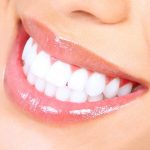Why Do My Teeth Hurt When Eating Sweets? Understanding Tooth Sensitivity Without Cavities
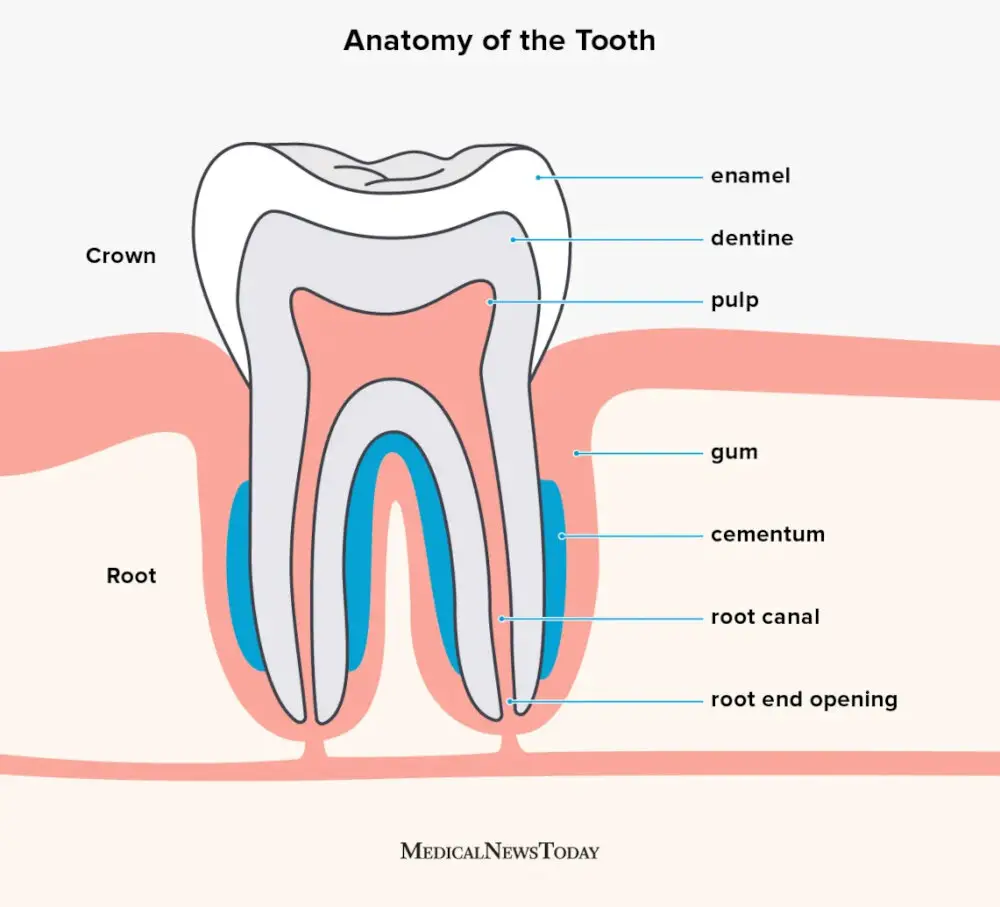
Tooth sensitivity is a common dental problem that affects many people around the world. Have you ever experienced a sharp pain in your teeth while eating your favorite sugary treat? If yes, then you are not alone. Many individuals suffer from tooth sensitivity when eating sweets, and it can be frustrating and uncomfortable. Tooth sensitivity can be caused by various factors, including cavities, gum disease, and enamel erosion. However, in some cases, tooth sensitivity can occur even without cavities. Understanding tooth sensitivity without cavities is essential to know how to prevent it and keep your teeth healthy. Tooth sensitivity can be caused by various factors, including exposed dentin, receding gums, and enamel erosion. When your tooth enamel wears down, the dentin layer underneath becomes exposed, leading to sensitivity. Additionally, receding gums can expose the root surface of the tooth, leading to sensitivity. This can cause discomfort while eating or drinking hot, cold, or sweet foods and beverages. In this article, we will explore the causes of tooth sensitivity without cavities and the preventive measures you can take to avoid it.
Tooth sensitivity is a common dental problem that affects many people, causing sharp pain or discomfort when consuming hot, cold, sweet, or acidic foods and drinks. It occurs when the tooth enamel, which protects the tooth’s surface, becomes thin or damaged, exposing the underlying layer of dentin and nerves. Dentin contains tiny tubules that allow sensations to reach the nerves, which can trigger pain or discomfort when exposed to external stimuli. Tooth sensitivity can be caused by a variety of factors, including tooth decay, gum disease, teeth grinding, enamel erosion, and even brushing too hard. It is important to address tooth sensitivity promptly, as it can lead to further dental issues if left untreated.
Tooth sensitivity can be a common and uncomfortable problem for many people. The most common cause of tooth sensitivity is exposed dentin, which is the layer of tooth underneath the enamel. This can occur due to tooth erosion caused by acidic foods and drinks, brushing too hard, or grinding teeth. Other causes of tooth sensitivity include gum recession, which exposes the tooth root, and cracked or chipped teeth. Receding gums can be caused by gum disease, brushing too hard, or aging. Cracked or chipped teeth can be caused by trauma, biting down on hard objects, or tooth decay. It is important to see a dentist if you are experiencing tooth sensitivity to determine the underlying cause and receive appropriate treatment.
Enamel Erosion

Enamel erosion is a common dental problem that occurs when the protective outer layer of the teeth, known as enamel, wears away. This can be caused by a variety of factors, including acid erosion from foods and drinks, tooth grinding, and brushing too hard. Symptoms of enamel erosion can include increased tooth sensitivity, discoloration, and roughness on the surface of the teeth. If left untreated, enamel erosion can lead to more serious dental problems, such as cavities and gum disease. Preventing enamel erosion is key to maintaining healthy teeth and gums. This can be achieved by avoiding acidic foods and drinks, such as citrus fruits and soda, and brushing gently with a soft-bristled toothbrush. It is also important to seek treatment for underlying dental conditions, such as tooth grinding, and to maintain regular dental check-ups and cleanings. By taking care of your teeth and being mindful of the foods and drinks you consume, you can help prevent enamel erosion and maintain a healthy, pain-free smile.
Enamel erosion is a gradual process in which the hard outer layer of the tooth, known as enamel, begins to wear away due to exposure to acidic substances. This can be caused by a number of factors, including consuming sugary or acidic foods and drinks, brushing too hard or using a hard-bristled toothbrush, or grinding your teeth. When the enamel becomes thin or damaged, it can expose the underlying layer of the tooth, called dentin, which is much more sensitive to temperature and pressure. This can lead to tooth sensitivity, which can be painful and uncomfortable. It is important to take steps to protect and strengthen your enamel, such as using a fluoride toothpaste, avoiding acidic foods and drinks, and practicing good oral hygiene habits.
Enamel erosion is a common dental issue that occurs when the hard outer layer of the teeth gets worn down due to various factors. One of the leading causes of enamel erosion is excessive consumption of acidic foods and drinks like citrus fruits, soft drinks, and sports drinks. The acids in these foods and drinks dissolve the minerals in the enamel, leading to its weakening and eventual erosion. Another significant factor that contributes to enamel erosion is tooth grinding or clenching, which puts undue pressure on the teeth and can cause them to wear down over time. Other factors that may lead to enamel erosion include genetics, certain medications, and acid reflux disease. It is essential to take care of our teeth and avoid these contributing factors to prevent enamel erosion and maintain good dental health.
Tooth sensitivity is a common problem that can occur when the enamel on the teeth erodes. Enamel erosion is typically caused by consuming acidic foods and drinks, which can gradually wear away at the enamel over time. When the enamel is eroded, the underlying dentin layer becomes exposed, which contains small tubules that lead to the nerve of the tooth. This can lead to a painful sensation when the tooth is exposed to hot or cold temperatures, as well as when consuming sugary or acidic foods. Additionally, brushing too hard or using a hard-bristled toothbrush can also contribute to enamel erosion, as can grinding or clenching the teeth. To prevent tooth sensitivity, it is important to practice good oral hygiene and limit exposure to acidic foods and drinks.
Gum Recession
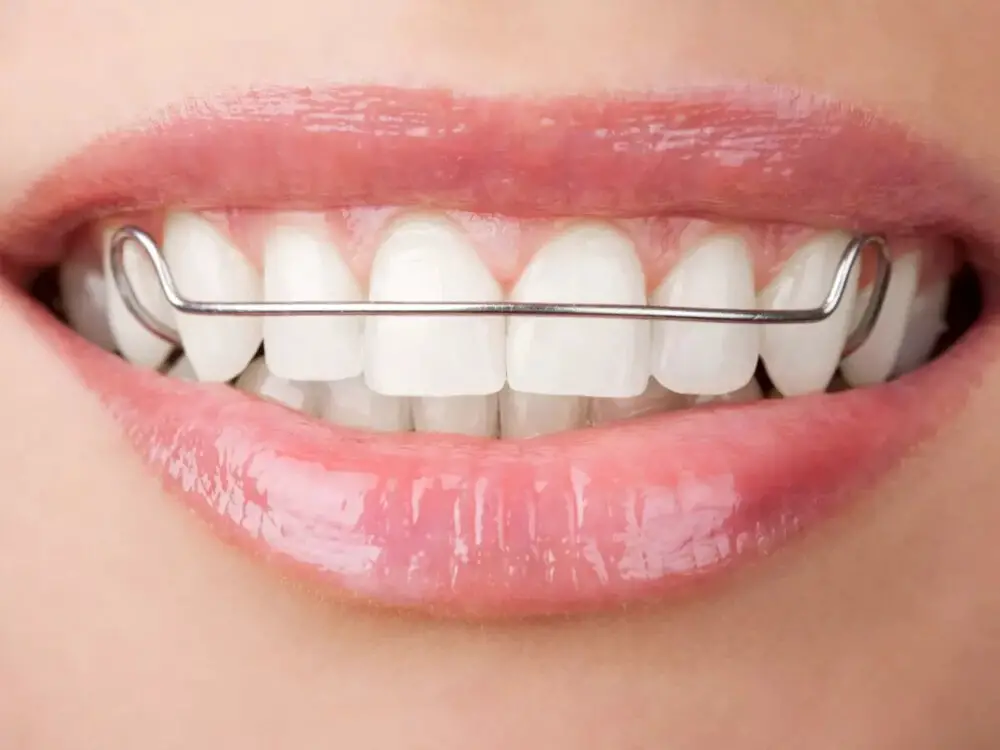
Gum recession is a dental condition that occurs when the gum tissue surrounding the teeth pulls back, exposing the tooth root. This can lead to tooth sensitivity, as the root surface is not covered by enamel, which protects the tooth from temperature and pressure changes. Gum recession can be caused by several factors, including poor oral hygiene, aggressive brushing, gum disease, and genetics. If left untreated, gum recession can lead to tooth loss, as the roots of the teeth become exposed and vulnerable to decay and infection. To prevent gum recession, it is important to maintain good oral hygiene practices, including brushing twice a day, flossing daily, and using an antiseptic mouthwash. It is also important to avoid smoking and limit the consumption of sugary and acidic foods and drinks. If you are experiencing gum recession or tooth sensitivity, it is important to see a dentist as soon as possible, as they can assess the extent of the damage and recommend appropriate treatment options, such as a gum graft or desensitizing toothpaste. By taking care of your teeth and gums, you can prevent gum recession and maintain a healthy, beautiful smile.
Gum recession is a common dental problem that occurs when the gum tissue surrounding the teeth pulls back, exposing more of the tooth or even the root. This can be caused by a variety of factors, including periodontal disease, aggressive brushing, hormonal changes, and genetics. When the gums recede, it can lead to tooth sensitivity, as the exposed tooth or root is more susceptible to damage from hot, cold, or sweet foods and drinks. If left untreated, gum recession can also lead to more serious dental problems, such as tooth decay, infections, and even tooth loss. It is important to seek treatment from a dental professional if you notice any signs of gum recession, such as tooth sensitivity, visible roots, or changes in the appearance of your gums.
Gum recession occurs when the gum tissue that surrounds the teeth pulls back or wears away, exposing more of the tooth or the tooth’s root. One of the leading causes of gum recession is poor oral hygiene. When plaque and tartar buildup on teeth, it can lead to gum disease, which causes the gums to recede. Brushing too aggressively can also cause gum recession, as it can wear away gum tissue over time. Other factors that can contribute to gum recession include genetics, age, hormonal changes, smoking, and certain medical conditions such as diabetes. Additionally, grinding or clenching teeth can put excessive force on the gums, leading to recession. It is important to address gum recession promptly to prevent further damage and potential tooth loss.
Gum recession is a condition in which the gum tissue that normally covers the tooth root is pushed back, exposing the sensitive part of the tooth known as the dentin. This can be caused by a number of factors such as aggressive brushing, gum disease or aging. When the dentin is exposed, it can cause tooth sensitivity, especially when eating sweets or drinking cold or hot drinks. This is because the dentin contains tiny tubules that lead to the nerve endings in the tooth, making it more susceptible to sensations. As a result, when sugar or cold drinks come into contact with the exposed dentin, it can trigger pain or discomfort. It is important to address gum recession as soon as possible to prevent further damage to the tooth and reduce the risk of sensitivity.
Tooth Grinding
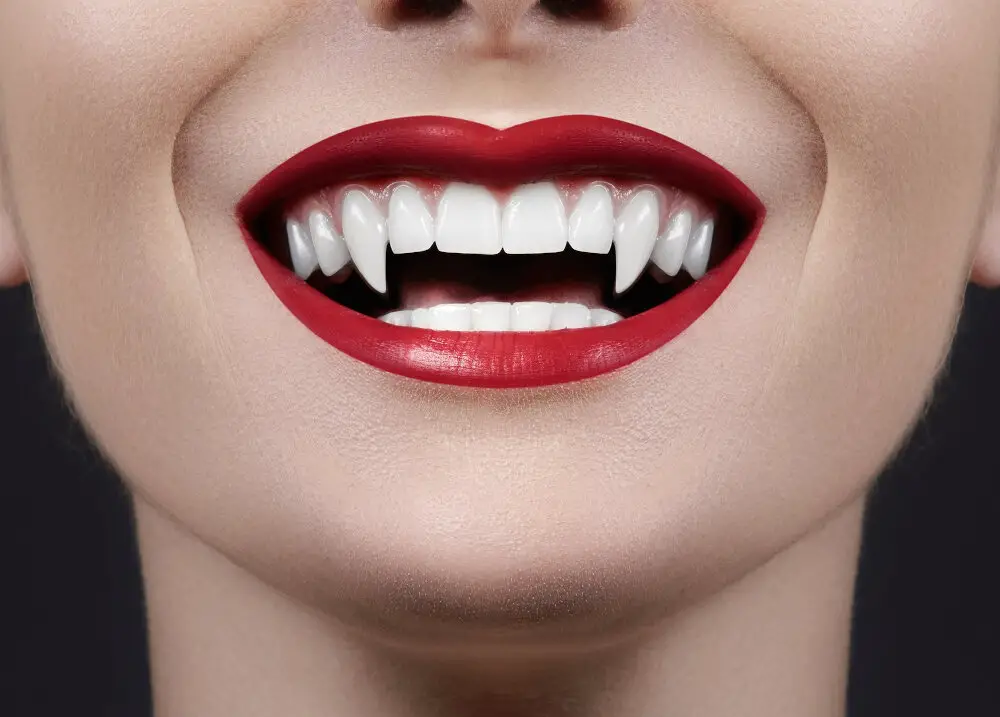
Tooth grinding, also known as bruxism, is a common condition that affects many people. It is a habit that involves clenching and grinding of teeth, usually during sleep. Tooth grinding can cause a variety of problems, such as tooth sensitivity, jaw pain, headaches, and tooth damage. This condition is often caused by stress, anxiety, or sleep disorders, but can also be a result of misaligned teeth or a poor bite. If left untreated, tooth grinding can lead to serious dental problems and can even cause tooth loss. There are several ways to treat tooth grinding, including wearing a mouthguard at night, practicing stress-reducing techniques, and correcting dental problems such as misaligned teeth. It is also important to avoid caffeine and alcohol, as these substances can worsen tooth grinding. If you suspect that you may be grinding your teeth, it is important to seek treatment as soon as possible to prevent further damage to your teeth and jaw. By taking steps to address tooth grinding, you can improve your dental health and reduce the risk of tooth sensitivity and other related problems.
Tooth grinding, also known as bruxism, is a condition that affects many people, especially during sleep. It is characterized by the grinding or clenching of the teeth, which can cause damage to the teeth and surrounding tissues. The causes of tooth grinding are not fully understood, but it is believed to be related to stress, anxiety, and certain medications. In addition, misaligned teeth or an abnormal bite can also contribute to tooth grinding. Symptoms of tooth grinding include headaches, jaw pain, and tooth sensitivity. Treatment options include lifestyle changes, such as stress reduction techniques, and the use of mouthguards to protect the teeth.
Tooth grinding, also known as bruxism, is a common condition that affects many people. There are several causes of tooth grinding, including stress, anxiety, and sleep disorders. When a person is stressed or anxious, they may clench their jaw and grind their teeth as a way to cope with their emotions. Sleep disorders such as sleep apnea can also lead to tooth grinding, as the disrupted sleep patterns can cause the body to tense up and clench the jaw. Other causes of tooth grinding may include misaligned teeth, missing teeth, or an abnormal bite. Regardless of the cause, tooth grinding can lead to significant pain and discomfort, and it is important to seek treatment if you are experiencing this condition.
Tooth grinding, also known as bruxism, can cause tooth sensitivity by wearing down the protective layer of enamel on the teeth, exposing the sensitive dentin underneath. When teeth are ground together, it can create micro-fractures in the enamel, making it easier for sugar and other irritants to reach the nerves of the teeth, causing pain and discomfort. Additionally, the constant pressure and friction of grinding can cause the gums to recede, exposing even more of the sensitive dentin. If left untreated, tooth grinding can lead to further damage to the teeth, as well as other dental issues such as headaches and jaw pain.
Overuse of Whitening Products

Overuse of whitening products is a common cause of tooth sensitivity. While these products can help remove stains and discoloration, excessive use can damage the enamel and cause sensitivity. Whitening products contain bleaching agents such as hydrogen peroxide or carbamide peroxide, which can penetrate the tooth enamel and reach the dentin layer, where the nerves are located. Overuse of these products can weaken the enamel and cause it to thin, making the nerves more vulnerable to external stimuli such as hot or cold temperatures or sweet and acidic foods. Furthermore, some whitening products may contain abrasive particles that can damage the enamel and expose the dentin layer, leading to sensitivity. It is important to follow the instructions provided by the manufacturer and not exceed the recommended usage. If you experience sensitivity after using a whitening product, it is best to discontinue use and consult with a dental professional. They can assess the damage and recommend a treatment plan to restore the enamel and reduce sensitivity.
Whitening products are designed to lighten the shade of teeth and remove stains and discoloration. These products work by using agents such as hydrogen peroxide or carbamide peroxide to penetrate the enamel and break down the molecules that cause staining. While some whitening products can be purchased over the counter, others require a visit to the dentist to ensure proper application and to monitor for any potential side effects. It is important to note that while whitening products can improve the appearance of teeth, they do not address underlying dental issues such as cavities or gum disease that may be causing tooth sensitivity.
Whitening products contain chemicals that penetrate the enamel of the teeth, removing stains and discoloration. However, this process can also remove some of the protective layer of the teeth, exposing the sensitive dentin underneath. This can lead to tooth sensitivity, which can be exacerbated by consuming hot or cold foods and drinks, as well as sweet or acidic foods. In addition, some whitening products may cause gum irritation or damage, further increasing tooth sensitivity. It is important to use these products as directed and under the guidance of a dental professional to minimize the risk of sensitivity and other side effects.
Teeth whitening products are becoming increasingly popular among people who want a brighter, more dazzling smile. However, many of these products can cause tooth sensitivity, which can be uncomfortable and even painful. To avoid tooth sensitivity when using whitening products, it’s important to choose a product that’s gentle on your teeth and to follow the instructions carefully. You should also avoid using whitening products too frequently, as this can damage your teeth and cause sensitivity. Additionally, it’s a good idea to use a toothpaste designed for sensitive teeth, as this can help to strengthen your tooth enamel and protect your teeth from sensitivity. Finally, it’s important to be patient when using whitening products, as it can take some time to achieve the desired results without causing tooth sensitivity.
Tooth sensitivity is a common dental problem that affects people of all ages. While cavities are one of the leading causes of tooth sensitivity, there are several other factors that can contribute to this issue. These include gum recession, enamel erosion, cracked or chipped teeth, and aggressive brushing habits. Gum recession can expose the sensitive roots of teeth, while enamel erosion can result from acidic foods, beverages, and certain medications. Cracked or chipped teeth can expose the sensitive dentin layer, and aggressive brushing habits can wear down the enamel and cause sensitivity. Identifying the root cause of tooth sensitivity is crucial to finding an effective treatment and preventing further damage to the teeth.
To prevent and treat tooth sensitivity, there are several tips you can follow. First, switch to a toothpaste that is specifically designed for sensitive teeth. These toothpastes contain ingredients that help to block the sensation of pain. Additionally, avoid brushing your teeth too vigorously as this can wear down your enamel and expose the sensitive dentin layer. You can also try using a soft-bristled toothbrush and brushing gently in a circular motion. Another way to prevent sensitivity is to avoid consuming acidic or sugary foods and drinks. If you do indulge in these treats, be sure to rinse your mouth with water afterward. Finally, if your sensitivity persists, see your dentist for a professional treatment such as a fluoride varnish or dental bonding.
Tooth sensitivity can be a troubling and uncomfortable experience, especially when it persists. While there could be a few reasons for this, it’s essential to visit a dentist if you’re experiencing prolonged tooth sensitivity. A dentist can help identify the root cause of the issue and suggest the best course of treatment. If left unattended, tooth sensitivity may lead to more severe dental problems, including gum disease or tooth decay. Moreover, a dentist can also help you with preventive measures to avoid tooth sensitivity in the future, such as changing your brushing techniques or using specific mouthwashes. Therefore, a visit to the dentist can assist in not only addressing the current issue but also preventing any future dental problems.
Conclusion
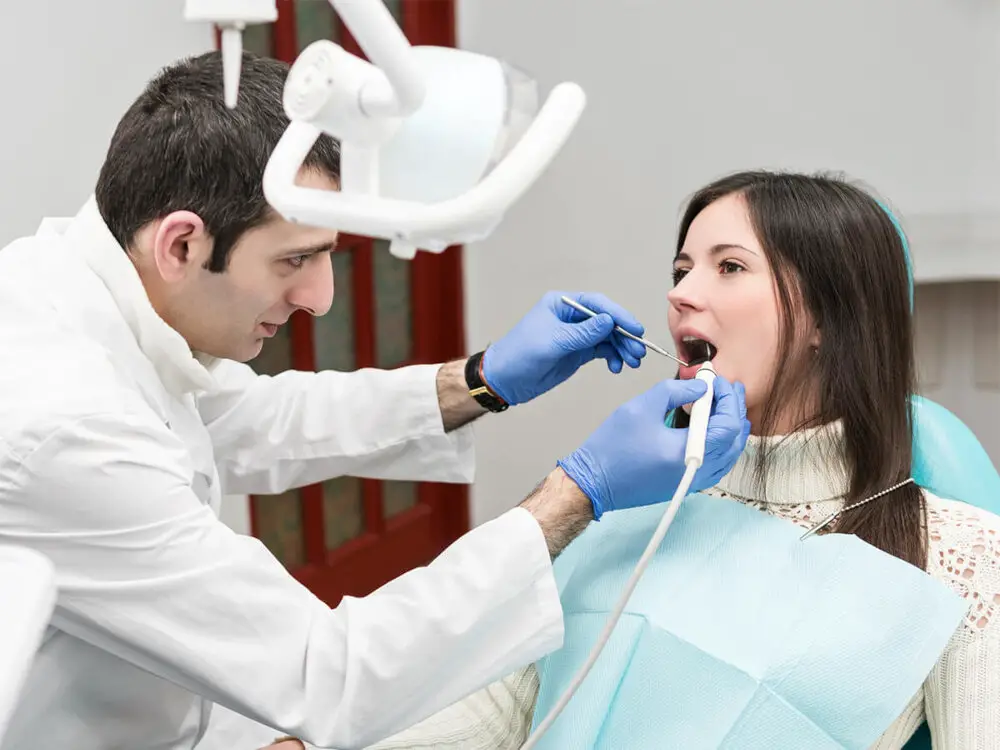
In conclusion, tooth sensitivity without cavities is a common problem that can make eating sweets a painful experience. The cause of this discomfort may be due to a variety of factors such as worn enamel, gum recession, or tooth decay. It is important to practice good oral hygiene habits, such as brushing and flossing regularly, to prevent tooth decay and other dental issues. Additionally, using toothpaste specifically designed for sensitive teeth and avoiding acidic and sugary foods can also help alleviate tooth sensitivity. If the pain persists, it is best to consult with a dentist to determine the underlying cause and receive appropriate treatment. Taking care of our teeth is crucial for our overall health and well-being, and addressing tooth sensitivity is a crucial step in maintaining a healthy and pain-free mouth.



